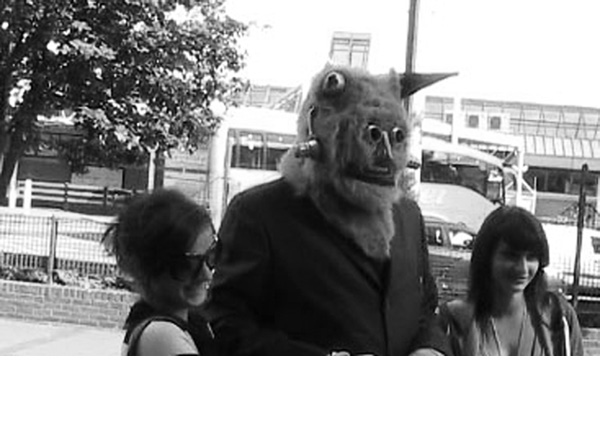
BEING DADA
first performed on September 11, 2012
Leeds City Centre, West Yorkshire, UK
performed once in 2012
SOHAIL KHAN
Adam Young
Huddersfield and Leeds, West Yorkshire, UK
BEING DADA
SOHAIL KHAN
I was lead artist for the A-Liveness project. I designed and initiated the A-Liveness Project from my belief that “There is a need for live art to be taken out of the context of the symposium, the festival, gallery and the studio space and placed in the public realm in order to create new audiences.”
“Being Dada” was my creation for the A-Liveness Project. The problem I wanted to interrogate concerned the value of performance itself to the public in general and to the art world in particular. Was it possible for live art/performance art as a distinct form to genuinely engage the public and creatively extend the language of performance into the wider public realm? (Without it moulting into another form i.e. street theater.) Or has it, as an art form, evolved into a dead end, with nothing new to say or offer outside of its varied self-reflexive and inward–looking coteries, communities and institutionalized settings?
Publicity framed the performance as “Having escaped planet Competent Mediocrity, visiting artist Being DA DA explores your city hoping to be enriched by his encounter with your vibrant cultural and artistic life.”
The work began in the foyer of the region’s flagship theater venues and ended at the city’s Henry Moore Institute. (No permissions were sought for the use of any of these spaces). The journey took two hours with “Being Dada” moving through the public and private areas of the city (a bus station, shopping centers, the interiors of shops and private shopping arcades, market halls, plazas, streets and pedestrian walkways).
Interaction with the public took many forms. This performance was funded by the Arts Council of England through lottery money. So I often de-masked/de-roled and chatted to the people I met about the fact that, since they probably didn’t go to the opera or theater, I was bringing value to them as stakeholders who funded such work from the public purse.